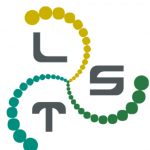The Erasmus Mundus Joint Doctorate Programme in “Law, Science and Technologies”
The Joint International Doctoral Degree in “Law, Science and Technology” is an interdisciplinary integrated doctorate designed to address new challenges in legal, socio-ethical and technical domains arising from the information society and newly emerging technologies.
There are rapidly evolving sectors of Information Technology and Life Sciences that need legal and ethical instruments for avoiding malpractice and for shaping policies and strategies in conducting scientific research and disseminating its results to industry and society. New opportunities emerge to use Information Technology to face the complexity of Law in contemporary society. All this requires a set of interdisciplinary competencies that are usually lacking in the graduate market due to a lack of vision and strategy.
The emerging technological, economical and social framework (the so-called information society, or knowledge society) offers new huge opportunities for individual and social development, as well as serious risks. In order to produce innovative solutions that enrich quality of life it is essential that opportunities are fostered and risks are minimized and that different competences are combined in a holistic way.
This is possible only if technologies are viewed through the lens of law, ethics, human rights, economics, and in turn, that social humanist disciplines acquire genuine understanding of the technological principles, languages and methodologies. Otherwise the risk is advancement in the state of the art in technology, which is not matched by social innovation.
The programme of the EM Joint International doctorate in “Law, Science and technologies” seeks to close the gap between disciplines and to create innovative researchers and professional experts, covering, in this way, the urgent need to create new experts in law, science and technology with a strong interdisciplinary background, capable of identifying, addressing and solving complex problems arising from the intersection of law, science and technology, and providing solutions that shape society and economy in the future.
The “Law, Science and Technology” doctorate aims to address the problem of fragmentation that exists in Europe in this interdisciplinary area, by setting up a robust doctoral programme inspired by the Stanford programme in Law, Science and Technology, while also addressing the unique requirements of Europe by looking at the impact of European cultural identities on ethical, medical and legal discussion, as well as at the specifics of European regulations. The programme covers three different research fields with its curricula:
- “Bioethics and Biolaw”, which looks at the legal and ethical problems of advances in biology and medicine;
- “ICT Law”, addressing the legal risks and opportunities in ICT, and
- “Legal Informatics”, an area of informatics taking into account legal issues, including alI techniques applied to legal domain.
The programme is original in the following aspects:
- It brings together centres of international renown for innovation and interdisciplinary research and takes maximum advantage of the competences on different fields of specialization.
- It enable students to demonstrate a wide range of skills and knowledge while also allowing specialist research at an advanced level, making candidates conduct research in different environments like law and computer science departments. It begins with a common path for all students (which allows interdisciplinary dialogue as well as an economy of scale in teaching), and then the path diverges in the second year into different structured tracks.
- It enables students to apply their knowledge in the professional world by including in the third year a period of internship in a sector relevant to their field of research.
This programme promotes the excellence online gambeling, innovation and competitiveness of Europe in critical legal and ethical fields such as the regulation of privacy, genomics and biobank, e-government, e-health and e-commerce, the right to free speech on the Internet and the Intellectual Property Rights (IPR) with respect to new technologies. Moreover, it furthers the design of new software to support the legal profession, including systems based on the explicit representation of laws and regulations in computable form, including the topic of “check compliance” with international, European and national legal frameworks.

 LAST-JD
LAST-JD 










